
Learning Management system
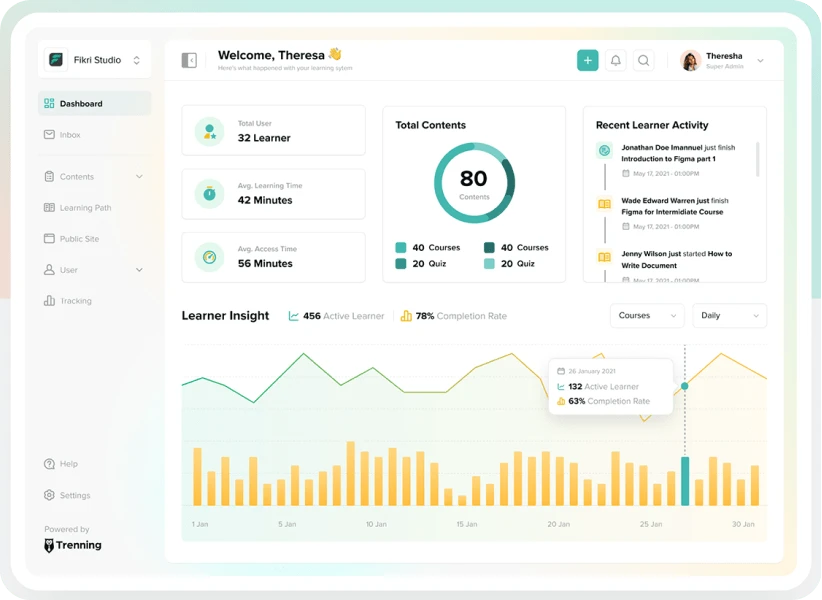
A Learning Management System (LMS) is a software application designed to enhance your eLearning experience by enabling you to create, manage, deliver, and assess training and educational courses. It facilitates the administration, documentation, tracking, reporting, automation, and delivery of learning and development programs. Optimize your virtual learning environment by hiring skilled LMS developers from our expert team of remote professionals. At GraffersID, we specialize in crafting customized eLearning solutions that transform the way you deliver and track eLearning programs. Stay ahead in educational technology by streamlining your processes and empowering your learners.
Hire our dedicated LMS developers, who are passionate about creating eLearning solutions that not only meet your current project requirements but also anticipate future market demands. By choosing our team, you're not just hiring developers—you’re building a long-term partnership committed to growing alongside your business. Your success is our top priority. Let’s shape the future of eLearning together. Get in touch with us now!
Talk to our team for custom pricing
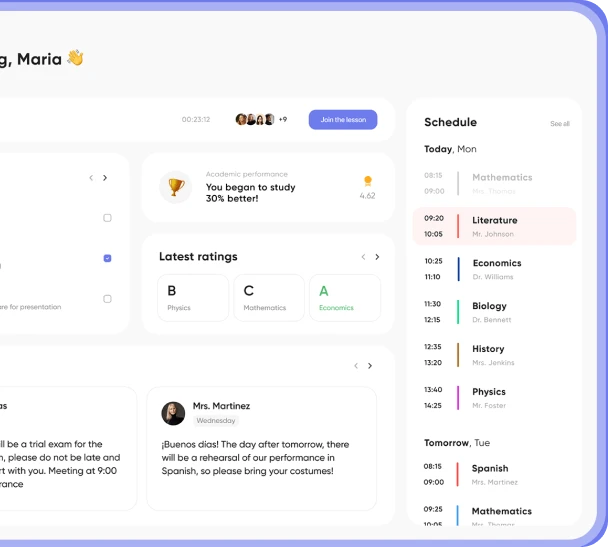
In the education industry, Learning Management Systems (LMS) offered as Software as a Service (SaaS) have transformed the entire learning process. This cloud-based LMS solution has revolutionized how educational institutions and organizations deliver and manage eLearning content. LMS platforms provide 24/7 access to educational resources, personalized online courses, and training while enabling users to track eLearning progress and performance. With the increasing demand for remote learning, LMS SaaS has experienced significant global growth.
LMS SaaS is not limited to the education sector; it also benefits industries such as healthcare, technology, and manufacturing. It is easy to use, reliable, flexible, scalable, cost-effective, and secure. This makes it a preferred choice for institutions and enterprises looking to adopt innovative teaching methods. This case study explores the growth of the LMS SaaS industry, its functionalities, and its impact on various sectors.
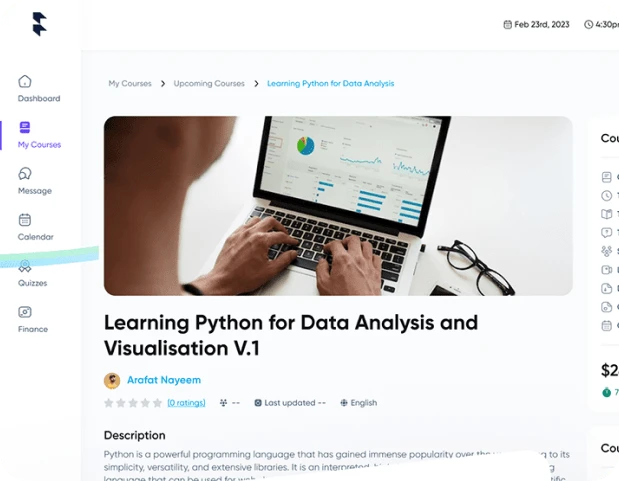
Talk to our team for custom pricing
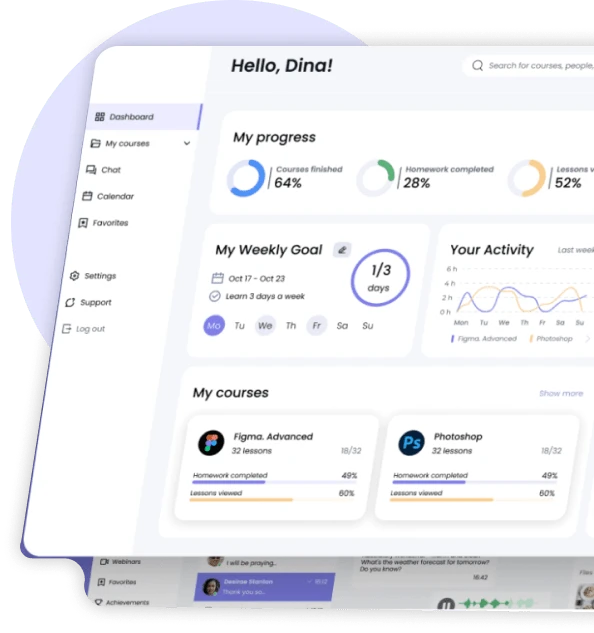
Talk to our team for custom pricing
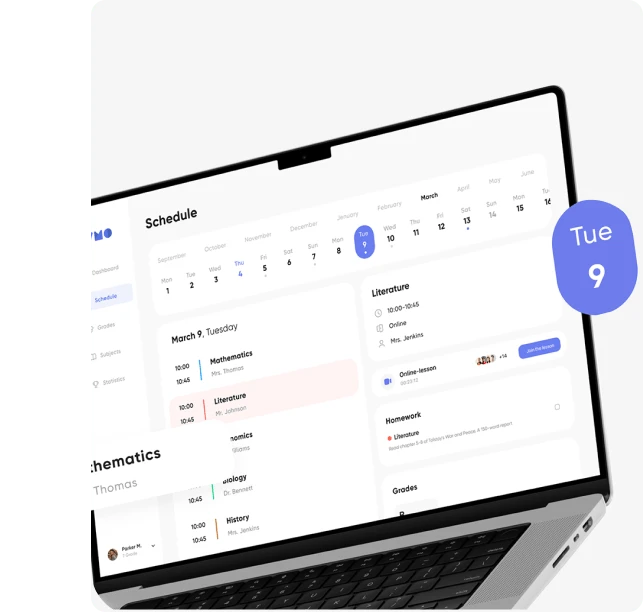
Our Learning Management System (LMS) software supports a diverse range of multimedia content, including videos, animations, and interactive materials. While this enhances the learning experience, efficient content delivery remains a challenge. Users have reported delays in content loading while streaming, negatively affecting their overall learning experience. Load times play a crucial role in shaping user engagement on eLearning platforms. To address this, our LMS developers continuously optimize content delivery methods using advanced mechanisms to improve streaming capabilities, significantly reduce load times, and enhance the overall user experience.
With the growing demand for mobile learning (mLearning) solutions, learners increasingly access educational content on various devices, from smartphones to tablets, creating unique challenges. To maximize mLearning’s potential, a well-optimized LMS is essential. Features such as responsive design, offline access to content, and performance tracking and analytics are transforming mobile LMS platforms, making education more accessible, engaging, and impactful than ever before.
Many companies heavily rely on manual data entry for financial processes, which is time-consuming and prone to errors. These inaccuracies have resulted in an annual loss of approximately 5% of our revenue. Implementing an LMS with financial management capabilities can automate data entry, reducing errors and streamlining financial operations.
Our LMS software needs to integrate with various external applications, such as CRM systems, e-commerce platforms, and accounting tools. This complex process demands significant effort and resources, delaying new feature rollouts and impacting customer satisfaction. Partnering with a LMS development company to simplify these LMS integrations would reduce the time and resources required, allowing us to focus more on enhancing our core product.
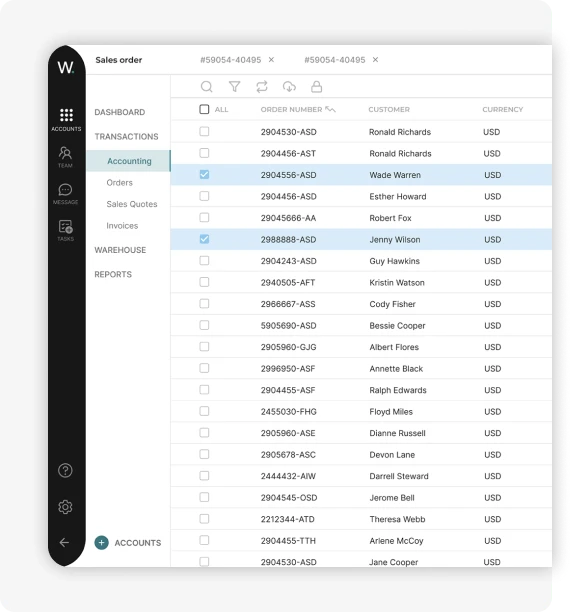
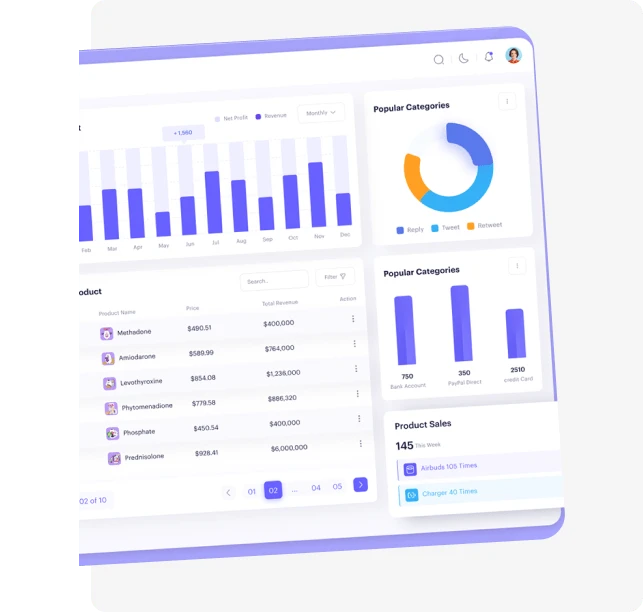
In education and training, students increasingly seek personalized and adaptive learning experiences. They want content that not only matches their skill levels and preferences but also evolves as they progress. This highlights the need for smarter, more personalized learning platforms. To address these demands and enhance our LMS, our LMS development company integrates intelligent adaptive eLearning systems. These LMS systems enable our platform to customize content and assessments for each learner, making education more engaging and effective.
Talk to our team for custom pricing
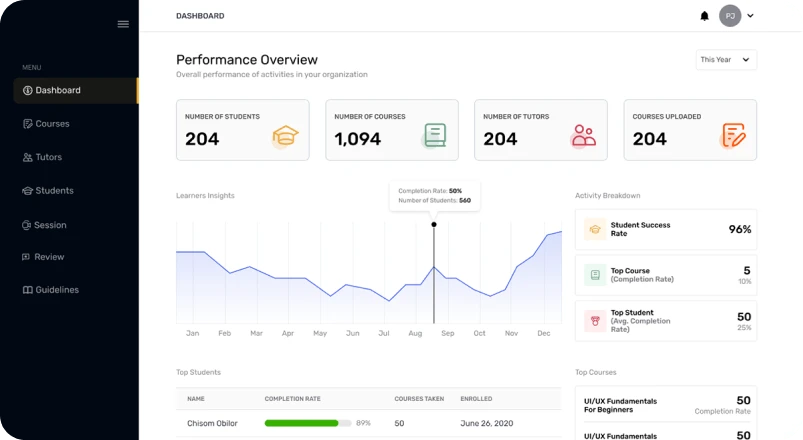
AI-Driven PersonalizationLeverage AI to create personalized learning paths, content, and assessments tailored to individual needs. This enhances engagement by allowing learners to progress at their own pace and according to their preferences.
Interactive ChatbotsImplement chatbots to provide instant assistance, offer relevant suggestions, and create an interactive, conversational learning experience.
Content Gamification Incorporate game elements into courses, such as quizzes, leaderboards, and achievement badges, to boost learner motivation and participation.
Video AssessmentEnable users to demonstrate their knowledge by recording videos. They can present ideas, answer questions, or showcase practical demonstrations to reinforce learning.
Microlearning ModulesDeliver concise, focused lessons that provide essential information in bite-sized formats, allowing users to grasp key concepts quickly and efficiently.
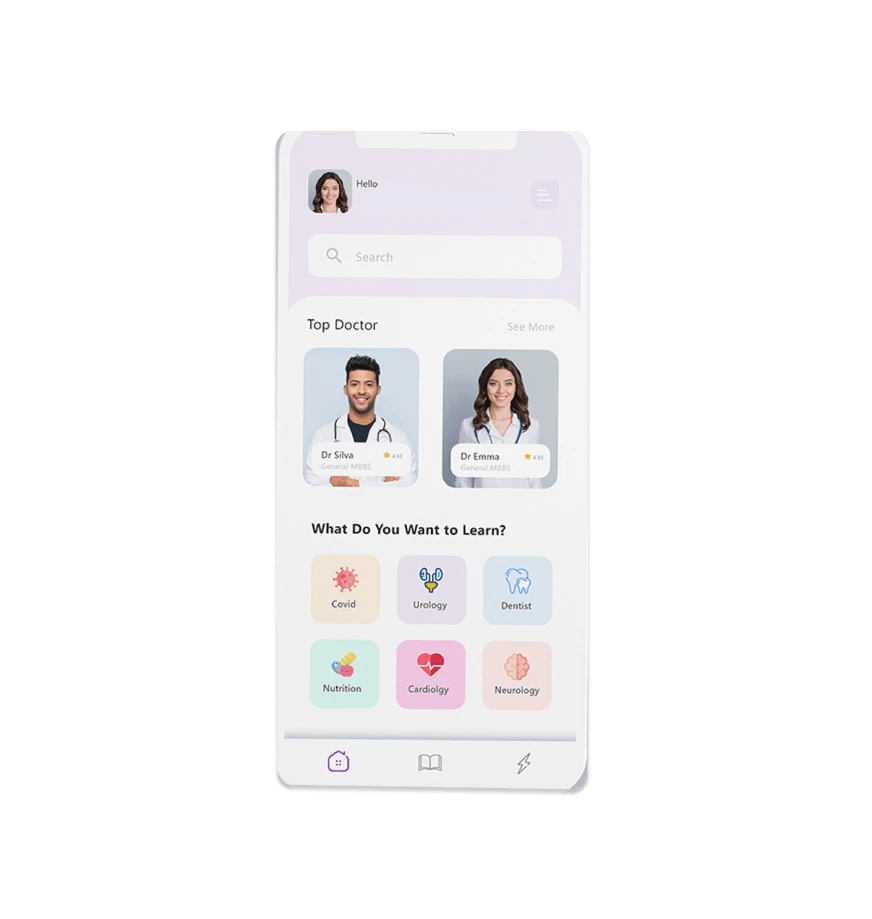
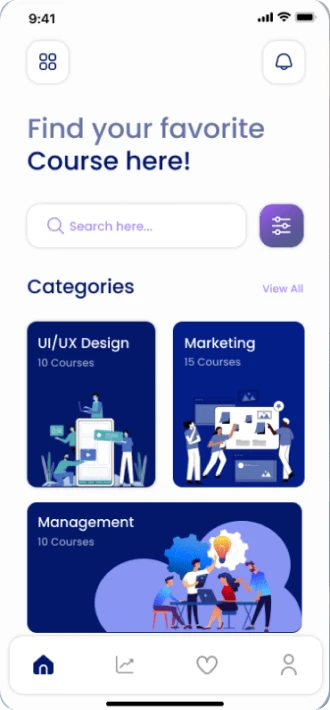
Social Learning CommunitiesCreate social communities of learners who collaborate in groups. These communities should include chat rooms, shared workspaces, and team-based tasks. This fosters a sense of belonging and engagement among learners.
Progress Dashboard The Progress Overview panel provides learners with valuable insights to track their achievements effectively.
Adaptive TestingImplement adaptive assessments that adjust difficulty levels based on a learner’s performance. This approach ensures a more accurate evaluation while reducing fatigue.
Rich Media ContentEnhance learning experiences with diverse multimedia content, including 3D models, videos, animations, and augmented reality, making lessons more interactive and engaging.
Offline Learning ModeEnable content accessibility in offline mode, allowing learners to study without an internet connection. This feature is especially beneficial for individuals with limited or inconsistent network access.
Skills Verification Incorporate third-party skills assessment platforms to ensure proper verification of learners’ progress in online courses.
Voice SearchIntegrate voice-activated tools with voice search functionality to enhance content discovery, making it especially useful for mobile users.
Multi-Lingual ToolsEnable language-switching features to allow learners worldwide to access information in their preferred language.
Integration with Video ConferencingInclude a video conferencing tool to facilitate online classes, webinars, and one-on-one discussions with instructors.
Competency FrameworkUtilize framework tools to track and document skills, maintaining records that help analyze learners' progress and align their objectives with desired outcomes.
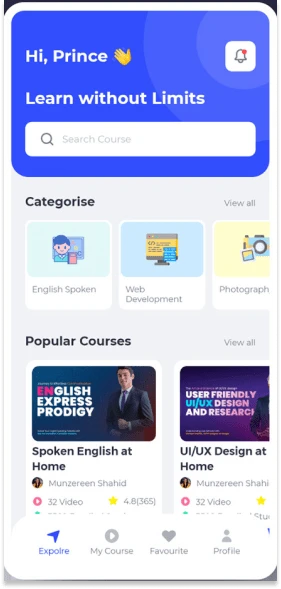
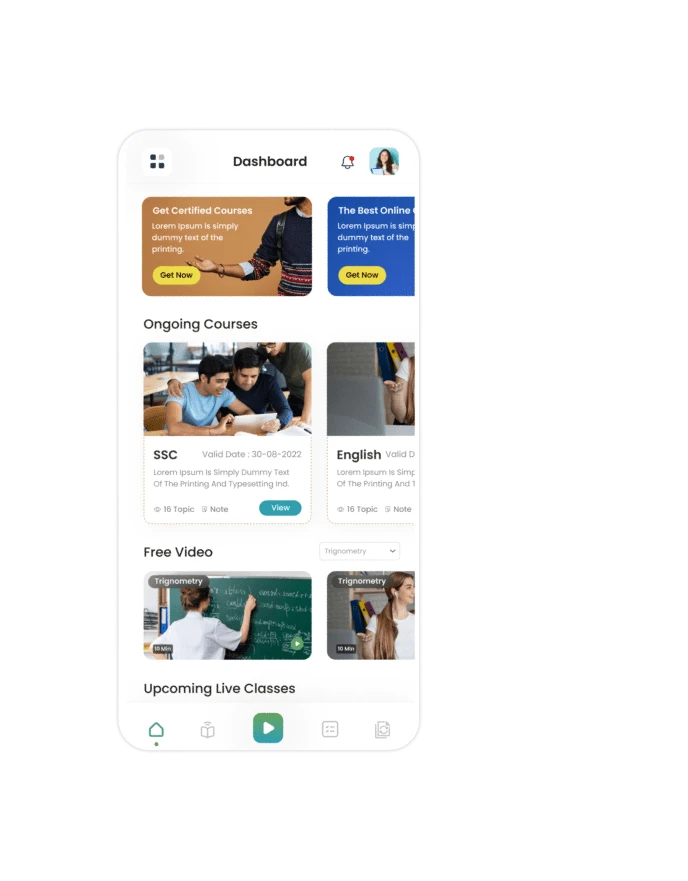
Learning Analytics Predictive ModelsLeverage predictive analytics to identify students who may face difficulties, allowing teachers to intervene and provide timely support.
Accessibility FeaturesEnhance accessibility for all users, including those with disabilities, by incorporating features such as screen readers, closed captions, and alt text for images.
Continuous FeedbackFacilitate regular feedback between students and teachers, enabling them to share insights and improve class experiences within the portal.
In-Browser Coding SandboxProvide an in-browser coding sandbox for students enrolled in technical programming or related courses, allowing them to write and test code without switching between different platforms.
Peer Review and FeedbackImplement a peer review system where users can evaluate each other's work and offer constructive feedback, fostering collaboration and deeper learning.
Interactive 360-Degree Videos Integrate 360-degree videos that allow learners to explore real-world locations. This approach enhances hands-on learning experiences, particularly in fields like architecture, geography, and history.
Content RemixingEnable educators to easily remix and repurpose existing learning materials. This flexibility allows them to create customized lessons and adapt content to suit diverse learning needs.
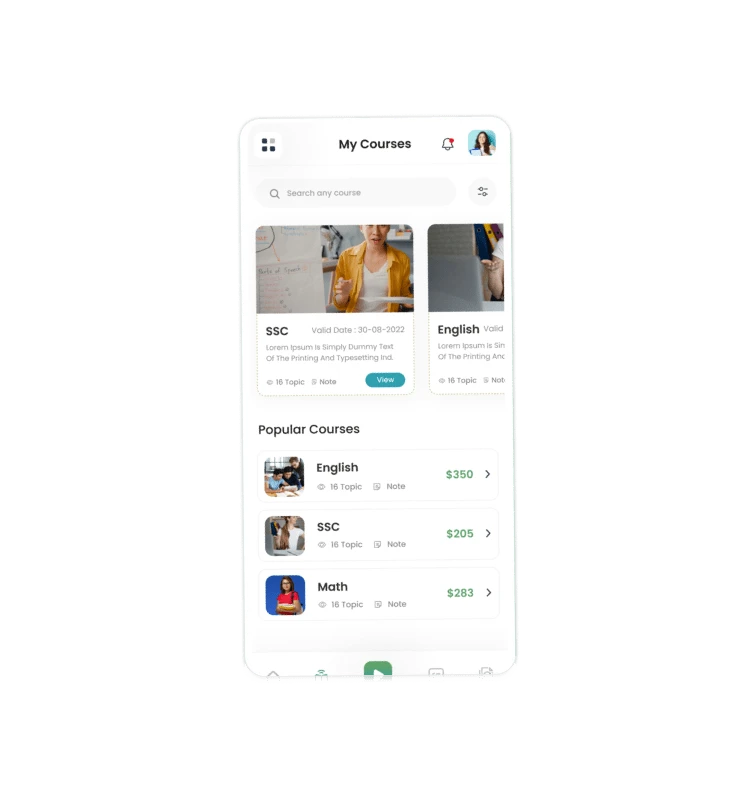
From Security to Code Quality we have got your covered
GraffersID offers a ready-to-join pool of in-house developers who you can trust with your code and product.
Mandatory NDA Resources
Restricted Data Sharing
Manage As you Like
Complementary Tracking Tools
Direct Control of Resources
Connect with GraffersID experts to hire remote developer on contractual basis.